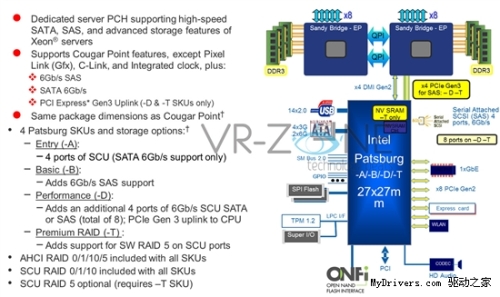 The high-end fever platform is always exciting, but the progress of Intel LGA2011 Waimea Bay is not very smooth, especially when the storage problems are difficult to solve for a time, resulting in delays in the release time and the functional features will be forced to streamline.
The high-end fever platform is always exciting, but the progress of Intel LGA2011 Waimea Bay is not very smooth, especially when the storage problems are difficult to solve for a time, resulting in delays in the release time and the functional features will be forced to streamline. The Sandy Bridge-E Core i7-3000 series processor and X79 chipset were originally scheduled for release in the third quarter of this year, but were postponed until the fourth quarter, and even once there was news that it would wait until 2012. There have been road maps showing that they will be released in October, but the latest date has been changed to November. Even so, this is a tentative time and does not rule out the possibility of further changes.
In short, Intel is trying to publish as early as possible, so as not to miss the end of the shopping holiday, and must be provided to OEM manufacturers as soon as possible to formulate next year's high-end PC planning. If the postponement to the end of the year or even 2012, these two excellent opportunities will be missed, Intel is clearly unacceptable.
On the other hand, even if it can be released in time in November, the new platform we see will not be the way it was initially planned. The Patsburg chipset was originally planned for four levels. The X79, which was used on the desktop, was originally designated Patsburg-D and was later reduced to third-place Patsburg-B. It lost four SATA/SAS 6Gbps interfaces and CPUs. Between the PCI-E 3.0 channel, but now has become the lowest Patsburg-A, no longer support SAS 6Gbps, so compared to the P67, Z68 is not too much.
What is even more depressing is that bad news about the X79 is said to be more than that, but it is still not clear what the problem is.
Electronic Wire Harness Co., Ltd. , http://www.nsusbcables.com
